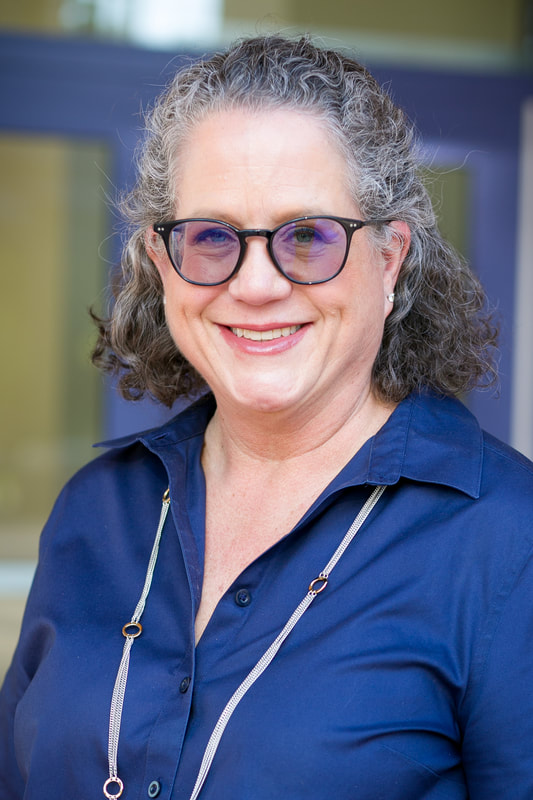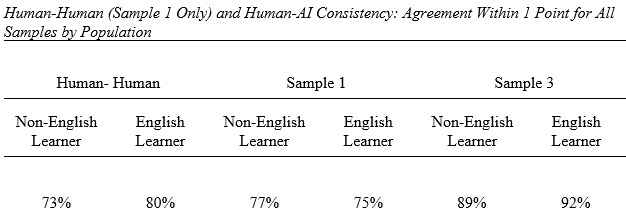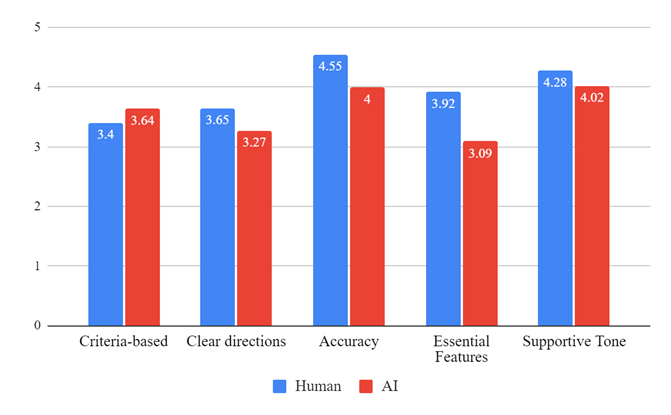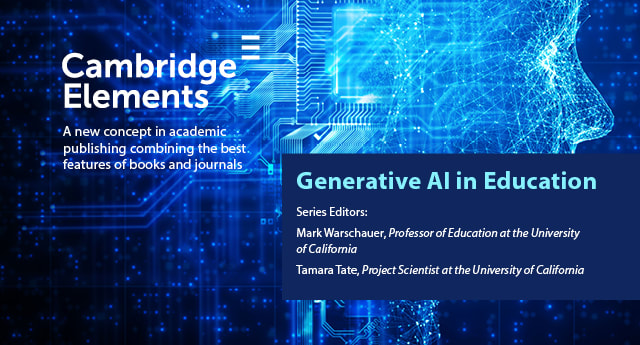Tamara Tate, PhD
|
Tamara Tate is Associate Director of the Digital Learning Lab.
Tamara leads the Lab's work on generative AI and writing. Her research focuses on technology-supported learning, school-based digital literacy interventions, and analysis of digital writing. As the PI of a NSF-funded grant, she is studying the use of generative AI in undergraduate writing courses. She also studies secondary student writing as a member of the IES-funded national WRITE Center and is part of the Elementary Computing for All team. Tamara received her B.A. in English and her Ph.D. in Education at U.C. Irvine and her J.D. at U.C. Berkeley. Tamara can be reached at [email protected] |
In the news...

This project aims to serve the national interest by developing an engineering writing curriculum that incorporates generative artificial intelligence (AI).
Can AI Provide Useful Holistic Essay Scoring?
|
Selected Presentations
New Series on AI in EducationThe release and rapid diffusion of ChatGPT and other large language models
has shed a broad public spotlight on the potentially transformative effect of generative artificial intelligence in education. Scholars and educators around the world are pondering how these new forms of generative AI are changing both what students need to learn and how they should be taught it. This Cambridge Elements series will address cutting-edge topics on generative AI in education. The series will cover a wide range of perspectives, from educational theory, to research reviews, to implications for practitioners. Connections will be drawn from prior uses of AI and digital learning to the new affordances and challenges of large language models. Diverse subject areas, from language and literacy to computer science, will be addressed, as will a broad swath of educational levels from preschool through higher education and beyond. Throughout, the series will take an in-depth critical perspective, highlighting the exciting potential of generative AI while also weighing challenges of privacy, ethics, and equity. This will be a must-read series for educators considering how to make use of AI in the classroom as well as for scholars seeking to keep abreast of research innovations in this major new area of inquiry. Interested in writing for us? Contact the Series Editors at [email protected] WRITE Center
Interested in writing in history classes? Visit the IES-funded WRITE Center website for great resources on writing, history, and our work on a new intervention. The WRITE (Writing Research to Improve Teaching and Evaluation) Center for Secondary Students researches academic writing, placing special emphasis on source-based argument writing in history, and provides national leadership and outreach activities to support improvement of secondary writing research and practice related to academic writing across the curriculum. The Digital Learning Lab is supporting the WRITE Center through analysis of writing corpora and development of digital tools to support the teaching and learning of source-based argument writing in history. Elementary Computing For All A collaboration between with university researchers and K-12 practitioners to promote computational thinking for multilingual students in elementary schools. Visit the website for more information and resources including curriculum for teachers. Online Learning Research Center Created in spring 2020 to communicate research-based information about online learning to those forced online due to emergency distance learning, the OLRC’s website provides access to 5 years’ NSF-funded research about online learning conducted by the Digital Learning Lab. Whether a first-time online instructor looking to get started, a veteran seeking to improve online teaching, a student seeking ways to improve online study skills, or a scholar or educational leader seeking the latest research on online learning, the OLRC.US site was designed to provide evidence-based resources to improve achievement and equity in online learning. Slides from our 2023 AERA presentation, Equity Online. |




